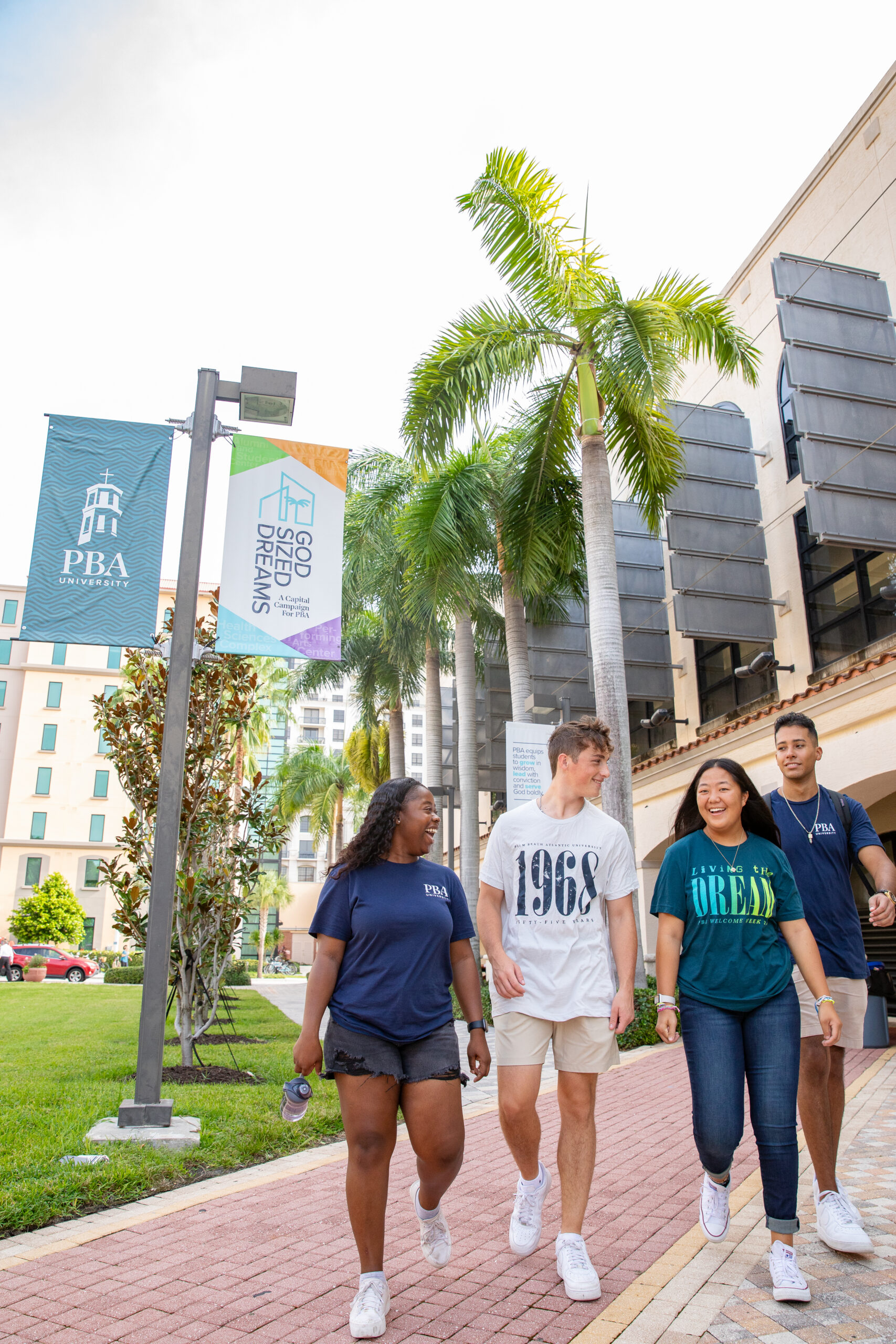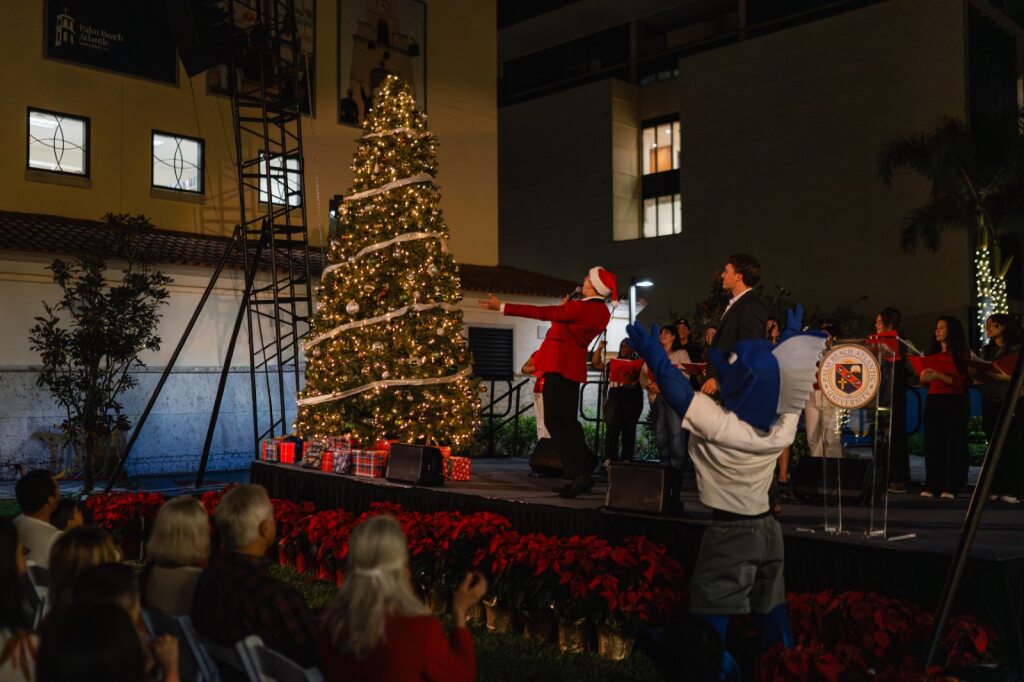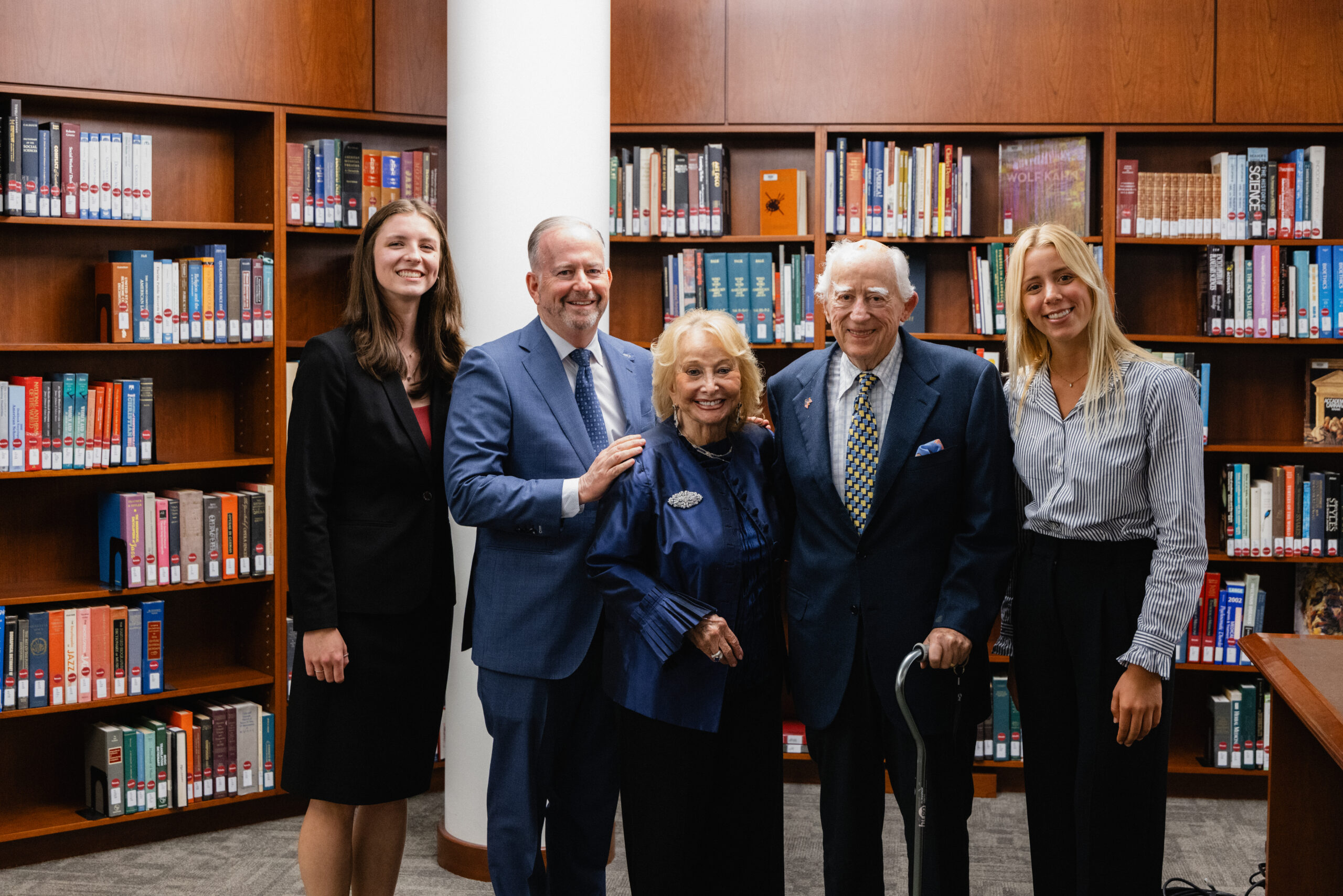WEST PALM BEACH, Fla. – (February 7, 2024) Palm Beach Atlantic University (PBA) has been granted $15,000 for its Creation Care Project from the Climate Science in Theological Education (CSTE) Grant Initiative. The initiative is a project of the American Association for the Advancement of Science (AAAS) Dialogue on Science, Ethics, and Religion (DoSER) program.
The Creation Care Project, the first of its kind at PBA, aims to create awareness around and encourage protecting South Florida’s unique and precious ecosystems. The project is guided by two core theological convictions, which emphasize the interconnectedness of all creation and the ethical obligation of humans to be stewards of creation.
The Creation Care project at PBA will be co-led by: Dr. Paul M. Gould, an associate professor of Philosophy at PBA’s School of Ministry, and Dr. Tom Chesnes, a professor of Biology at PBA’s School of Liberal Arts and Sciences. This project will involve interdisciplinary collaboration and create a learning environment that is beneficial for the School of Ministry and the future of our local communities. The School of Ministry currently serves over 150 students across various theological programs.
“In the light of our theological convictions, we view this grant as both important and timely,” shared Dr. Gould. “Our perspective is rooted in the belief that everything God creates is inherently good. This opportunity is not merely practical, but a chance to delve into the richness of Biblical understanding regarding Creation.”
The Creation Care project is a demonstration of collaboration across various departments at PBA to ensure students are provided with holistic training in their respective fields. The project is also a bold step toward promoting environmental stewardship within the faith community, inspiring practical action to safeguard creation and fostering a deeper understanding of the theological foundations of creation care.
“Faith communities are important stakeholders in our shared natural resources,” said Dr. Chesnes. “In coastal southern Florida, our local communities are directly impacted by climate-mediated events. This grant will help church leaders understand the context and potential role of the church in mitigating such events for their community.”
The project will focus on three main enrichment activities. The first one involves the Creation Care Cohort, a one-year program intended for 10 faculty and graduate students from PBA’s Graduate School of Ministry. They will meet bi-weekly during the 2024-25 academic year to discuss the theology and science of creation care. They will explore themes such as the biblical justification for creation care, the connection between creation care and neighborly love, how science informs creation care, and practical steps for advancing creation care in teaching and ministries.
In addition to the bi-weekly meetings, the cohort will go on a field trip/retreat in the spring 2025 semester to the Florida Keys or Everglades. Participants will also learn from and engage with experts working to monitor and remediate ecological challenges.
Other activities include the Faith and Cultural Symposium, which will take place in February 2025. This event is open to everyone and will feature lectures on creation care and climate science by prominent evangelical speakers. The symposium aims to provide valuable insights and build capacity. Participants can also connect with faith-based organizations involved in creation care.
The School of Ministry will also participate in PBA’s annual Earth Week Events in April 2025. This will include hosting an information booth or kiosk at the Earth Day fair and delivering a chapel sermon during Earth Week. The sermon will emphasize the importance of creation care within the graduate or undergraduate chapel.
In addition to the bi-weekly meetings, the School of Ministry cohort will experience and participate in a variety of ancillary events throughout the year, including:
- A field trip/retreat to the Florida Keys or Everglades to learn from and engage with experts working to monitor and remediate ecological challenges.
- The Faith and Cultural Symposium, which will take place in February 2025. This event is open to everyone and will feature lectures on creation care and climate science by prominent evangelical speakers. The symposium aims to provide valuable insights and build capacity. Participants can also connect with faith-based organizations involved in creation care.
- Earth Week 2025 events, including hosting an informative booth at the Earth Day fair and delivering a chapel sermon to emphasize the importance of creation care.
###
About Palm Beach Atlantic University
Palm Beach Atlantic University, founded in 1968, is a private, Christian university, offering 100 different programs and pathways, including undergraduate degrees, graduate degrees and professional degrees. The university has a 19-acre campus in West Palm Beach and an Orlando campus, and the 78-acre Marshall and Vera Lea Rinker Athletic Campus provides facilities for training and hosting intercollegiate sports. Sailfish athletes compete in 18 NCAA Division II and Sunshine State Conference varsity sports. PBA affirms the values that have built American society, including religious liberty and the free enterprise system. The university is dedicated to the integration of biblical principles to prepare students for learning, leadership, and service. Learn more at www.pba.edu.
About AAAS and DoSER
The American Association for the Advancement of Science (AAAS) is the world’s largest general scientific society and publisher of the Science family of journals. The nonprofit is open to all and fulfills its mission to “advance science and serve society” through initiatives in science policy, international programs, science education, public engagement, and more. Building upon its mission, AAAS established the Dialogue on Science, Ethics, and Religion (DoSER) program in 1995 to facilitate communication between scientific and religious communities. For the latest information and news about AAAS DoSER and the Climate Science in Theological Education project, visit AAAS.org/DoSER, ScienceReligionDialogue.org, and ScienceforSeminaries.org.


